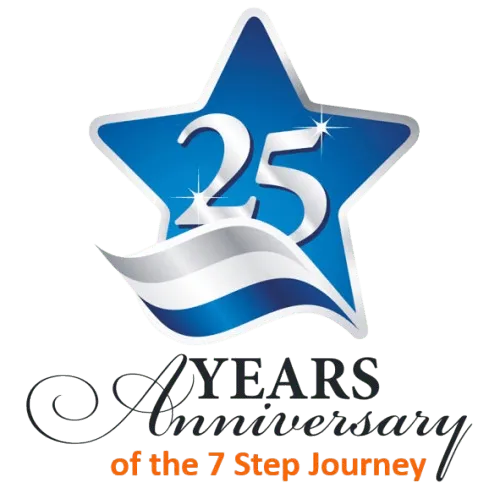Clare’s Clutter Clearing Story
Clare’s Clutter Clearing Story
It wasn’t until 2015, just after I turned 43, that I first experienced the grief of losing a human loved one. I had experienced the loss of my best friends in childhood – my dogs – and the loss of my cat Betty in 2009, but not a human loved one.
My paternal grandfather died the year before I was born. My maternal grandfather died when I was only 6, my maternal grandmother when I was 21, and my paternal grandmother when I was 23, but I was never close to any of them. They were people I saw once or twice a year, it wasn’t a close bond.
When my father-in-law Frank died in November 2015, two weeks after he last came to stay with us for a weekend, it was a shock. Not just because it was so sudden, but also because there was nothing wrong with him. He had been to stay with us for a weekend a couple of weeks prior to his death, and he had been given a clean bill of health by his doctor. At aged 86 ½ he had to have a medical for his insurance for a weekend in Belgium we had planned to take with him in December, to visit a Christmas market.
Oddly, it was a comfort when the coroner told me he had died of heart failure and would have been dead by the time he hit the floor of his kitchen, two days before he was found. He wouldn’t have known a thing.
I surprised myself by my feelings of grief. I had only known Frank for 11 years when he died, but we had grown close. We spent a lot of time together, and he became a substitute father to me. It was my first experience of parental unconditional, non-judgemental love and acceptance. He supported us and never judged or criticised us. He was critical of my parents behaviour and parenting, but never of us.
When my husband Keith and I were having problems and getting divorced a couple of years after we got married, I have memories of him going up and down the garden, between Keith in the house and me in my office, trying to get us to talk. He didn’t take sides and told me he cared too much about me to see us so unhappy. It was ironic that he was trying to act as mediator, given that when his own wife came home one day and said she wanted them to go her separate ways, he said nothing and just accepted it. Maybe he saw that Keith and I had a relationship worth fighting for and the potential to learn to communicate better than he had with his wife.
When Frank died, it was my first experience of human grief, and I experienced having to learn to live with the void in my life. Not being able to text him – I taught him how to text two years before he died. It enabled us to communicate with him without spending ten minutes trying to end the call! I missed his amazing sausage rolls that I had also taught him how to make. He brought up a batch every time he came to stay for a weekend. I missed being able to tell him something trivial, knowing that even if he didn’t understand the significance of it, he was happy for me.
Almost seven years to the day after Frank died, my brother died. Although my brother didn’t die suddenly or unexpectedly like Frank, for me it was exactly like Frank’s death, because my parents didn’t tell me he was ill or dying. The difference was, I had a longer, more complicated history with my brother.
Once again, I was sent into shock, and once again I had to learn to live with the loss, although this time I felt guilty that the reality was that my brother wasn’t a part of my present life like Frank was. It’s the grief of the loss of the chapters of our lives that we had shared together, the loss of the one person who knew first hand, what being part of our family was like, and who I didn’t have to explain it all to. The loss of the shared past rather than the shared present and future.
Having now reached a certain age (!) and having now experienced the grief of the human loss of loved ones, I now think about the grief that will be part of the future. I think about how my husband is going through a grief for my mother-in-law who has dementia. He has slowly been losing, over the last 6 years, the mother he knew. Although he has reached a point of acceptance of the inevitable, the rest of the family are not quite there yet.
Every loss is unique, as is the size of the void they leave behind. We can be tempted to fill that void with their physical things, for fear of forgetting them. Yet that can lead to clutter and keep us stuck in the past and just existing instead of living, in the present.
I think the best way to learn to live with the grief is to realise that our loved ones wouldn’t want us to be stuck in the past with them, not living our Best Life in the present and future. They wouldn’t want our lives to end with them. Yes – maybe go on pause for a while, but not at the expense of us living our Best Life, which they hopefully did when they were alive.
The best way I have found to fill that void that is left by a loved one passing is to create new traditions to keep their memory alive. However, someone who struggles with clutter, also struggles with the fear of forgetting, so it’s important find new ways to trigger the memories that matter and let go of the ‘stuff’.
For me and my husband, we remember the memories of Frank by sharing stories of him on his birthday, ‘death’ anniversary, Christmas and so on. We have appointment reminders on our digital devices of key dates of happy things what we did together. We trigger the memories as we look at the photobooks we’ve created for each key date and event. We have a digital photo frame in our lounge which constantly shows photos of him throughout his life. We spend at least a weekend every year, either on his birthday or death anniversary, visiting the place where we spread his ashes and although I have no memories of him in that place, my husband can share those memories as we look at the family photo albums.
For my brother, I light a candle in his memory every night, next to a photo of us together when I got married – my proudest moment of him being my brother. I have another picture of him in my office, laughing while wearing a Christmas cracker hat. Last year we started a new tradition of camping for a few nights around his birthday (he loved camping) and visiting his grave with his widow afterwards. Around his death anniversary we will go and stay in the holiday town where we spent our childhood summers, and where he wanted to move. I will visit his grave with his widow every Christmas. I will meet up with his best friend once a year and share stories.
We are already capturing the memories of the past for my mother-in-law, who is still physically with us, but for whom the memories are so cruelly being taken from her before she is gone.
When we capture the memories through photos and stories, we keep the memories alive, and they are never forgotten. We can’t change the past – which means that although their book of life may have come to an end, we keep them alive in the past chapters of OUR book of life and they continue to get mentioned in our present and future chapters.
If you are struggling to let go of physical things that connect you to loved ones who have passed, think about how you can best honour the memories of the past, without having to keep the physical things to trigger those memories. When you do that, you can live your Best Life in honour of those who have passed.
Always remember that when you’re making decisions – it’s the memories that matter, not the ‘stuff’.
You can clear your clutter fast, or you can clear your clutter forever, but you can’t clear your clutter forever, fast.
To find out how Clare can help you clear your clutter Forever, without the need for an expensive home visit, click here now: https://www.clutterclearing.net/clares-help-centre/

